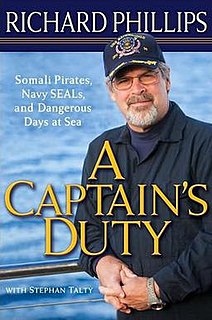 W
WAn indirect presidential election was held in Somalia on 30 January 2009. Due to the security situation in Baidoa, it was held in Djibouti. President Sharif Sheikh Ahmed won in a run-off election.
 W
WThe Action of 3 March 2009 took place when the German Bremen-class frigate Rheinland-Pfalz chased and captured a pirate skiff in the Gulf of Aden, after the persons on board the small vessel fired at and attempted to stop the German-owned tanker MV Courier. The operation marked the first time that the German Navy captured a hostile vessel at sea since World War II.
 W
WThe Action of 7 September 2009 took place when the German frigate Brandenburg, taking part of Operation Atalanta, chased and captured a pirate skiff south of Mukalla, in the Gulf of Aden, after suspicious activity was spotted on the small vessel by the frigate's helicopter during a reconnaissance mission. The boat was disabled by gunfire, and one suspect from her crew was killed. Four individuals were captured and weaponry confiscated and eventually destroyed.
 W
WThe Battle of South Mogadishu occurred in the Somali capital of Mogadishu on February 24, 2009.
 W
WA Captain's Duty: Somali Pirates, Navy SEALs, and Dangerous Days at Sea is a book by Captain Richard Phillips, the captain of the container ship MV Maersk Alabama when it was hijacked in 2009. It was written with Stephan Talty and published by Hyperion on April 6, 2010.
 W
WThe Central Somalia Spring Fighting of 2009 was a series of battles in Hiraan, Shabeellaha Dhexe and Galgudug between rebels of al-Shabaab and Hizbul Islam and government forces and ICU militants loyal to the government, during spring 2009 as well as pro-government militia of Ahlus Sunnah wal Jamaah. The fighting led to al-Shabaab capturing major government strongholds and Ethiopian forces re-entering Somalia and setting up bases in Hiraan. There was a halt in fighting during a government offensive in Mogadishu, which started on May 22.
 W
WPiracy off the Somali coast has threatened international shipping since the beginning of Somalia's civil war in the early 1990s. This list documents those ships attacked in 2009: for other years, see List of ships attacked by Somali pirates.
 W
WThe Battle of Mogadishu (2009) started in May with an Islamist offensive, when rebels from al-Shabaab and Hizbul Islam attacked and captured government bases in the capital of Mogadishu. The fighting soon spread, causing hundreds of casualties, and continued on at various levels of intensity until October. The battle's name usually includes the year, when referenced, in order to distinguish it amongst the nine major Battles of Mogadishu during the decades long Somali Civil War.
 W
WThe 2009 timeline of events in the Somalia War (2006–2009) during January 2009 is set out below. From the beginning of February the timeline of events in the Somali Civil War (2009–present) is set out following the conclusion of the previous phase of the civil war.
 W
WUnited Nations Security Council Resolution 1863, adopted unanimously on January 16, 2009, after recalling resolutions 733 (1992), 751 (1992), 1356 (2001), 1425 (2002), 1519 (2003), 1725 (2006), 1744 (2007), 1772 (2007), 1801 (2008), 1811 (2008), 1814 (2008), 1831 (2008) and 1844 (2008) on the situation in Somalia, the Council its intention to establish a peace-keeping force in war-torn Somalia and called on Secretary-General Ban Ki-moon to develop, by April 15, 2009, a mandate for the proposed mission, which would replace the existing African Union force in the country (AMISOM).
 W
WThe Battle of Wabho was a one-day-long battle fought between the Ahlu Sunna Waljama'a militia loyal to the Somali government and Islamist insurgent groups Hizbul Islam and al-Shabaab over the district of Wabho, located in Central Somalia. According to Mahmutcan Ateş, more than 123 people were killed as a result of the battle, making it one of the bloodiest battles in the Somali Civil War.